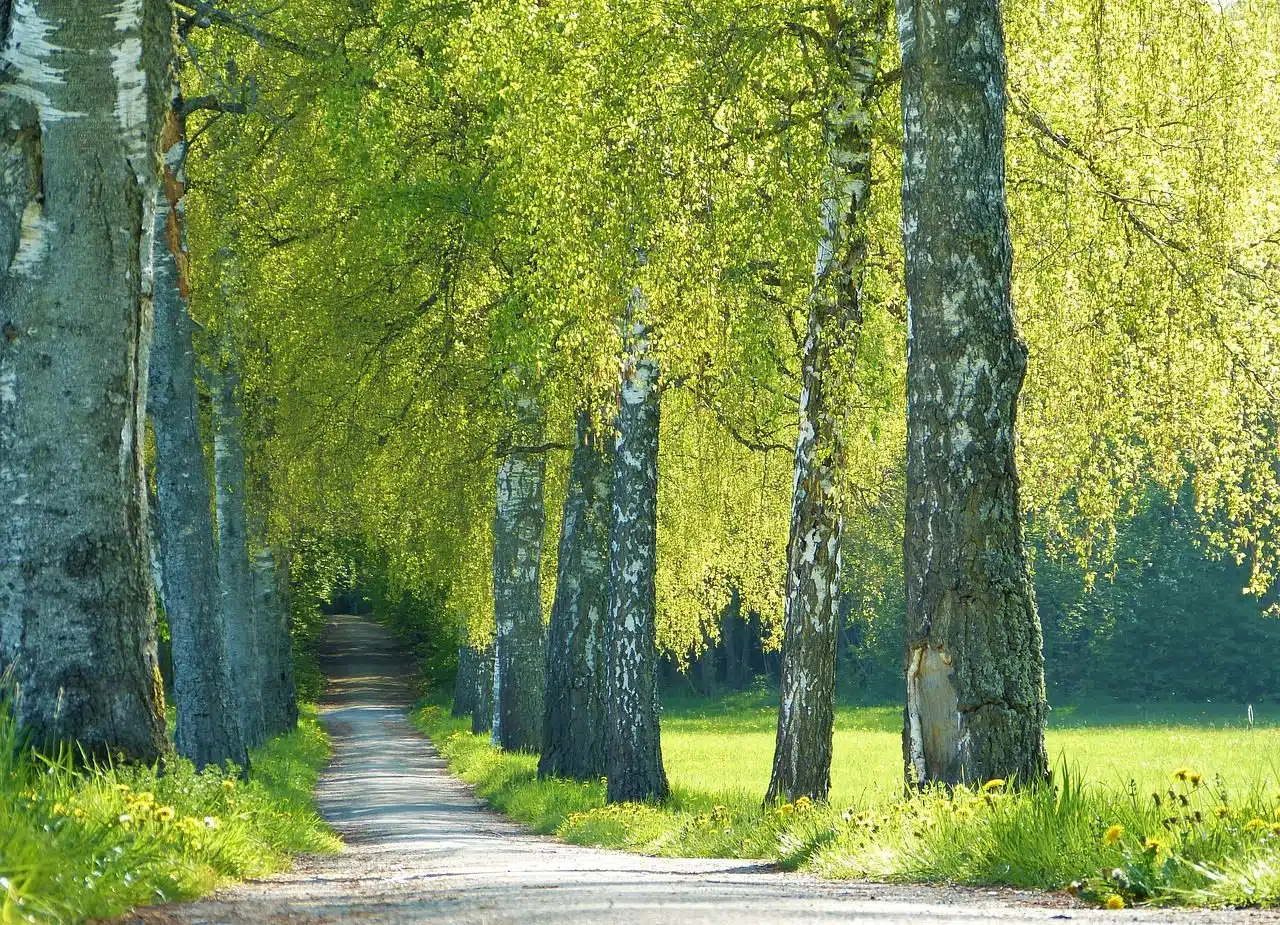
A birch belongs to the Betulaceae family group.
The birch is a tree of the order Fagales , which is part of the Betulacea family. The genus to which birches belong, on the other hand, is called Betula .
There are different species of birch. The common birch ( Betula pendula ) is native to southwest Asia and is also found on the European continent, Canada , the Caucasian region and other areas. Its growth usually occurs in places with humid soil and temperate climate.
Yellow birch ( Betula alleghaniensis ), gray birch ( Betula populifolia ), black birch ( Betula nigra ), dwarf birch ( Betula nana ), papyriferous birch ( Betula papyrifera ), downy birch ( Betula pubescens ) and birch Erman's ( Betula ermanii ) are other species of birch.
Birch characteristics
At a general level, it can be said that the birch reaches a height of up to thirty meters, with female and male flowers and rhomboidal leaves. Its branches have silver-colored bark and are characterized by their flexibility.
Due to its characteristics, the birch is a tree that is used in different ways. Its wood , roots , leaves and sap can be used to make buildings , produce food and develop medical treatments, to name a few possibilities.
Thanks to the impermeability of the bark , birch was traditionally used to build boats, clogs, ropes and containers of different types. The flexibility of the branches, on the other hand, makes the tree suitable for making baskets and baskets.
It should be noted that various peoples attributed purifying properties to the birch tree and that is why they used its branches to ward off spirits and demons.

Medicinal properties are attributed to birches.
Medicinal properties
Among the components of birch we find vitamin C, betulin, methyl salicylate, resins and essential oil, each with various beneficial characteristics for the care of our body and the fight against a large number of diseases. Below are some of the disorders that we can combat with the help of this plant:
- Overweight and obesity : many weight loss diets include birch decoctions to help with weight loss. Although it should be taken in addition to an adequate change in diet , its use makes a difference.
- Fluid retention : since this tree has diuretic properties worth highlighting, it is ideal for stimulating the kidneys. Furthermore, since it is a natural product, its contact with our body is not aggressive.
- Osteoarthritis and arthritis : these diseases can mark a before and after in a person's life, especially for those who use their body intensely to practice a sport or play a musical instrument. Birch has proven to be a suitable complement to treat them, thanks to its diuretic and anti-inflammatory properties , because they reduce inflammation in the joints and collaborate with the elimination of fluids retained there.
- Kidney stones : to combat this disorder, many people use birch sap , which is capable of helping to dissolve the stones. To obtain it, it is necessary to make a cut in the trunk during the last stage of winter, and then drink two small doses a day.
- Cystitis : It is difficult to think of a more annoying and irritating problem than cystitis, especially in the context of a life with obligations such as study and work outside the home. Luckily, in addition to industrial medicines, there is birch, whose bacterial action in combination with its already mentioned anti-inflammatory properties are ideal for treating bladder inflammation caused by the presence of pathogenic microorganisms.
- Diarrhea - it is recommended to drink a birch decoction three times a day. To prepare it, just add a tablespoon of bark per cup of water.
